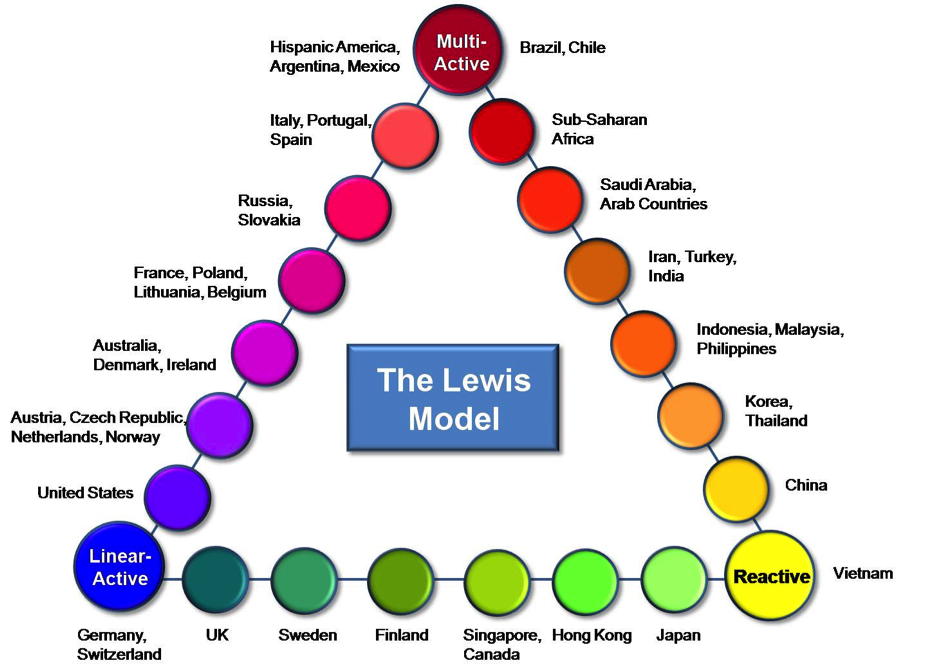Multi-active cultures
A multi-active person is extroverted, gives great importance to feelings, relationships and people.
Multitasking, dislikes agendas. Conversations are roundabout, emotional and animated. Thinks, speaks and listens at the same time. Interrupts frequently and is uncomfortable with pauses and silence.
Maintains relationships face-to-face, not by correspondence or phone calls. Written communication is less effective. Having limited respect for authority, accepts their place in their own social hierarchy. Has less respect for official announcements, rules, or regulations.
Often late with deadlines but also very flexible. The concepts of time and discourse are non-linear and people who prioritize schedule over relationships are difficult to understand. Doesn’t plan in detail but is good at improvisation. Tends to be emotional and family-oriented. Aware that everyone has their own truth. Doesn’t necessarily maintain promises if circumstances change. Conquers others with compassion and human warmth.
Countries and regions for multi-active people: Italy, Spain, Portugal, Greece, Malta, Montenegro, Turkey, Morocco, Egypt, Argentina, Mexico, Brazil, Chile, Colombia, sub-Saharan Africa, Middle East, India, Pakistan, most of the Slavic countries.
What if you want to live in Italy?
Looks like you are a natural and it will be quite easy for you to settle in Italy. Pay attention to the Italian concept of time that is less flexible than in most Arabic and Latin American countries and be proactive to create new, meaningful connections with locals.
If you want to learn more about Italian culture, read my book “Understanding Italy” (free with Kindle Unlimited) to get lots of useful information about life in Italy and italians.
Beware of stereotypes!
Not every German will be precise and punctual and not every Italian will be emotional and talkative. This test is based on a general scale model developed by Richard D. Lewis.
Some countries are in the middle of the scale, for example, Canadians are generally a mix of active and reactive types:

- As you noticed, I didn’t ask for your email before the results of the test. If you like this project, subscribe to the Multicultural You newsletter. I hate spam and will send you only one mail per month full of useful intercultural information!

